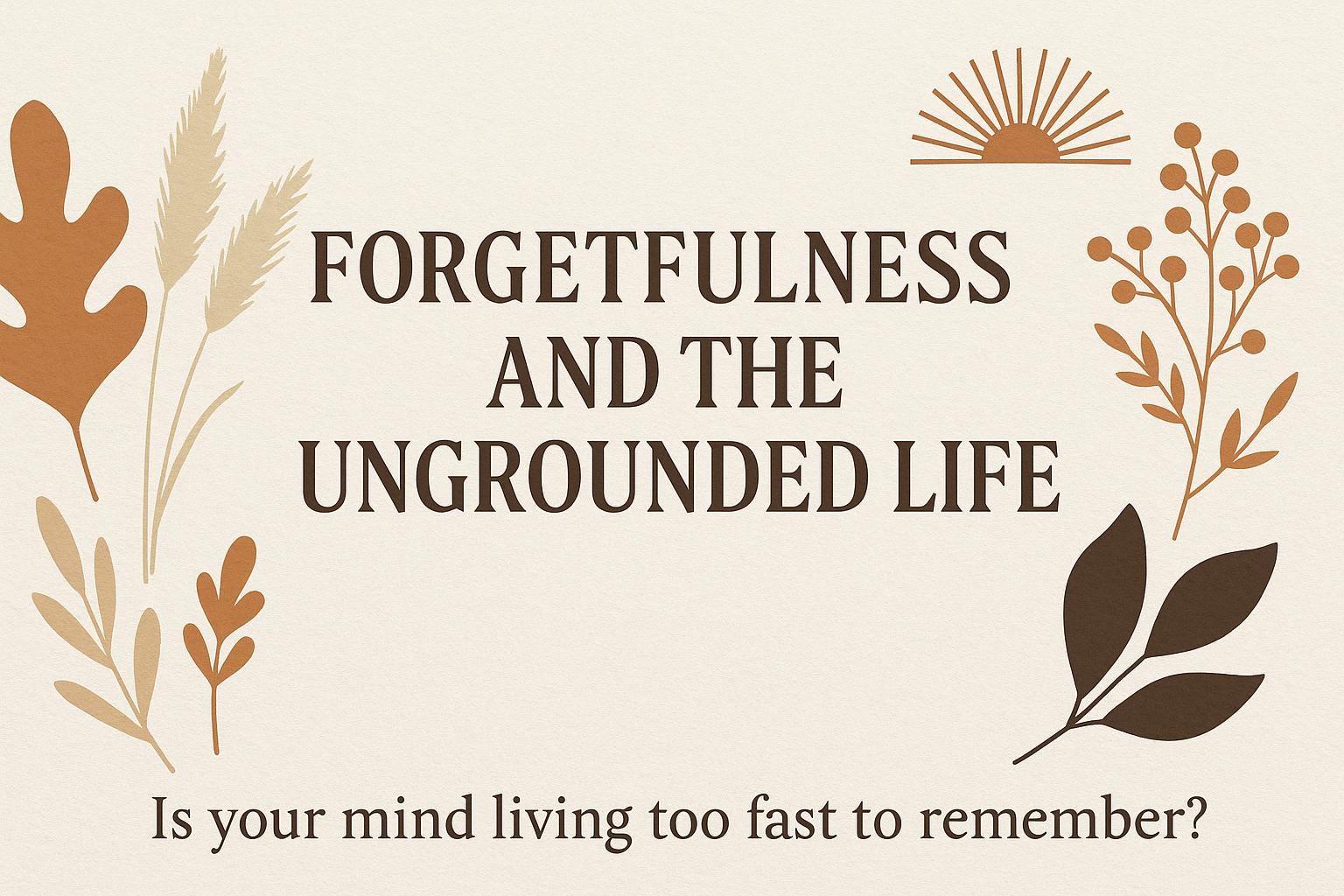A Christian Reflection on Presence, Attention, and Spiritual Grounding
Some forgetfulness has nothing to do with aging or cognitive decline. Sometimes the mind forgets because life is moving too fast for the heart to keep up. When someone repeatedly loses track of conversations, emotions, or intentions — without medical concern — it may reveal not a failing brain, but a soul overstimulated and under-rooted. A life lived in constant motion leaves no room for meaning to settle. We hurry and scroll and talk and plan — yet rarely pause long enough to absorb what’s happening inside us. Attention fragments. Emotions blur. Memories evaporate before they can take shape.
“Be still, and know that I am God.” — Psalm 46:10In Scripture, remembering is more than recalling facts — it is holding truth close. Forgetfulness can be a warning that we’ve drifted from the present moment and the God who meets us there. We often stay busy because silence feels threatening. Beneath the noise sit unprocessed feelings — grief, fear, guilt, loneliness — waiting to be acknowledged. But when we avoid stillness, confusion multiplies. The more stimulation we chase, the less peace we carry. The soul becomes like an overflowing cup — spilling instead of sustaining.
The Cost of a Scattered Life
As the mind scatters, the heart suffers too. Emotionally, we become irritable, detached, or exhausted — unable to feel deeply because we’ve forgotten how to notice our feelings. Relationships strain as loved ones sense our absence, even when we’re physically present. Cognitively, overload weakens focus and interrupts how the brain stores memory. Psychologists call this cognitive fatigue. Scripture calls it forgetting the Lord our God (Deut. 8:11). We gather endless information but lose wisdom, because wisdom is formed through reflection — and reflection requires rest.
“Anyone who listens to the word but does not do what it says is like someone who looks at his face in a mirror and immediately forgets what he looks like.” — James 1:23–24A restless mind can study Scripture but still miss God’s voice; wisdom needs space to breathe.
How Grounding Heals
Grounding begins where hurry ends. It is a holy return — to stillness, to self-awareness, and to the presence of God. Writing, reflecting, and responding to guided questions are not merely therapeutic exercises — they are spiritual practices of remembering. Writing slows thoughts to the pace of honesty. Reflection translates emotion into meaning. A faith-based workbook gathers scattered pieces of our inner life and offers them back to God. Each page becomes a sanctuary — truth is anchored, insight forms, and memory takes root.
Simple Ways to Regather Your Attention
- Sit in silence for five minutes a day. Let the soul settle.
- Breathe deeply and notice how God holds your body together in this moment.
- Do one thing at a time — allow prayer or Scripture to be your only focus.
- Journal what mattered today. Let your heart reflect before sleep.
- Read one verse slowly and let it linger in memory.
- Choose nourishment — Scripture, community, nature, and rest.
Rest isn’t laziness. It’s obedience. Sabbath is God’s invitation to remember what matters.
Reflection Questions
- What emotions might I be avoiding through busyness?
- When do I feel most present — and most scattered?
- When was the last time I truly listened — to God, myself, or another?
- Which workbook pages helped deepen my awareness?
- How can I create a rhythm that honors presence over productivity?
A Prayer for Grounding
Lord, gather the scattered pieces of my mind. Restore my memory, my focus, and my peace. Anchor my thoughts in Your truth and help me stay present to Your presence. Teach me to remember what matters— to listen, to rest, and to dwell in You. Amen.✨ Ready to refocus and restore peace? Explore printable Faith-Based Workbooks
https://paperlesspoppy.patternbyetsy.com/shop
#ChristianCounseling #FaithBasedWellness #GroundedLife #BeStillAndKnow #FaithAndFocus #SpiritualHealth #MindfulnessInChrist #TherapeuticWriting #FaithJournaling
